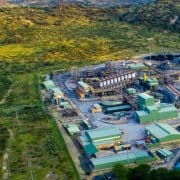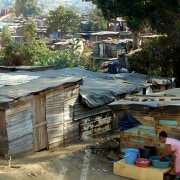|
Getting your Trinity Audio player ready...
|
By Mashudu Masutha
First published in Business Day
It is no secret that management of the broader societal issues in mining leaves much to be desired and that much of the dissatisfaction is attributed to the long history of mismanagement of community benefits and mining royalties.
The 2018 Corruption Watch report on mining royalties illustrated the vulnerabilities in the royalties system that have led to billions of rand being squandered, stolen or diverted because of infighting and maladministration of community funds.
This area of the mining sector holds a far-reaching corruption saga waiting to be uncovered, yet it remains largely untold because the victims are among the most impoverished and marginalised communities in the country.
Now, once again, there is upheaval in the industry after the release of the report of the Baloyi commission of inquiry into the traditional succession and mining royalties of the Setswana-speaking Bakgatla ba Kgafela community.
The commission, while focused on determining the royal succession of the Bakgatla ba Kgafela chieftaincy, also probed allegations of mismanagement and misappropriation of funds by the Bakgatla ba Kgafela Traditional Council.
This corruption requires urgent attention because, at its core, the issue is the governance of mining royalties and community benefits in South Africa.
These are monies that accrue to communities as a result of the mining operations that take place on their land, under the principle of a lifetime of compensation for mine-affected communities. Previously, royalties would be managed under the infamous D-account administration, which made provincial government the custodian of the mining royalties, but the trend these days — in North West, certainly — is rather for communities to convert this financial arrangement into equity or shareholding as the operating mine’s BEE partner.
The Baloyi commission was established after numerous community reports detailed allegations of commercial transactions related to the community’s mineral resources, and concern that under the traditional leadership of Chief Nyalala Pilane, there was mismanagement of community monies.
Certain individuals only were enriched
After four long years, the commission found that, among others, the community did not and would not benefit from BEE deals and agreements entered into by Pilane and certain members of the Bakgatla ba Kgafela Traditional Council in the community’s name. Instead, the Bakgatla resources and wealth were used to enrich offshore companies and a few selected local individuals, including the chief.
The commission found a strong provincial government influence in the governance of traditional communities. It also saw the provincial government’s hand in the flows of money that led to the loss of an estimated R5.46-billion in commercial transactions and assets held in the name of the Bakgatla ba Kgafela.
To this day, the Bakgatla community has nothing to show for this incredible wealth and is still confined to poverty, lack of development and infrastructure, as well as rising levels of despondency.
While the Baloyi report presents solid recommendations of further investigations into the flow of financial benefits to the community, and the requirement of annual audited statements, among other broad recommendations, we wonder whether such recommendations are sharp enough to tackle the nationwide culture of impunity and looting of mining royalties by traditional leaders, government officials, and mining companies.
THE BAKGATLA COMMUNITY HAS NOTHING TO SHOW FOR THIS INCREDIBLE WEALTH AND IS STILL CONFINED TO POVERTY
We have seen these recommendations before with the public protector report into the more than R600-million looted from the Bapo Ba Mogale community, and Judge Herbert Hendler’s report into more than R300-million that was taken from the Bakwena ba Mogopa community.
The reality is that without requiring oversight by bodies such as the standing committee on public accounts or the auditor-general, traditional communities will forever be stuck in this form of exploitation.
It is also clear we are talking about widespread criminality on the part of a range of many actors. Consequently, we will be asking the Special Investigating Unit to investigate this outrage.
The discussion about the future of the mining sector, and whether it is a sunset industry, continues unabated. South Africa’s vast untapped mineral resources seem to ensure that for mining companies and those looting the royalties owed to communities, the sun still sits high in the sky. But for many communities, it has never risen.
• Masutha is a researcher with Corruption Watch








